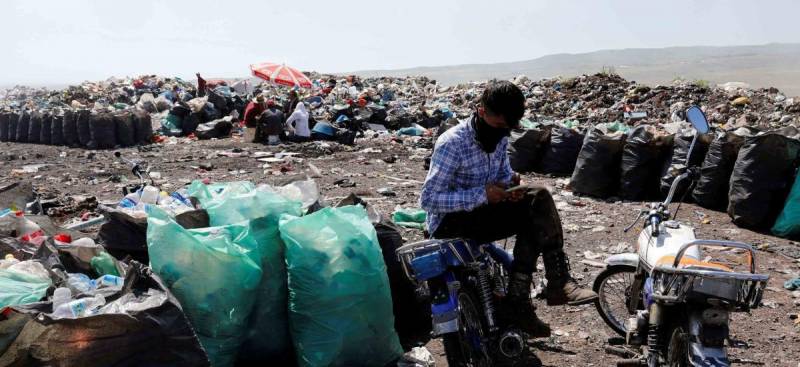Ali lives in one of the Karacadağ villages lined between Turkey’s southeastern provinces of Diyarbakır and Şanlıurfa. Like many young people living in those villages, the 17-year-old goes to work collecting and sorting garbage every year. Ali asked to use a pseudonym for this article.
“We can find jobs in metropolitan cities like Istanbul, Izmir, Ankara and sometimes in Diyarbakır, but mostly Syrians work in the garbage business here,” he said. “Sometimes we go around for hours and sift through the garbage for a piece of paperboard or a piece of iron.”
Families send over kids as young as 15-year-old kids there. They would love to find other work, but there are no job opportunities. Everyone in the area moves to the cities to work.
However, the villages of Karacadağ were once a centre for animal breeding. Milk, yoghurt and cheese used to come from Karacadağ to downtown Diyarbakır. The phrase “Karacadağ yoghurt” was known far and wide for its high quality.
I asked Ali what changed.
“I could not see those days, sister, partly my father saw it. I don’t know how it happened but when he couldn’t make money from the land, he started to go to seasonal work,” he said. “For 20 years, my father went to seasonal work in the west of Turkey. My father was a seasonal worker, I am a garbage worker.”
I later contacted a resident from the village of Karacadağ Övündüler, which I have known for many years. He used to work as an inter-village school bus driver but had to sell his vehicle as the pandemic brought Turkey’s economy to a near standstill.
I asked him what he does now to make ends meet.
Resident: “What can we do? We have a few animals and we will sell them. Feed prices have soared. The cost of feed is worth more than the animal itself. The animal doesn’t pay for itself.”
Nurcan: “Do you not get any support during this period?”
R: “The state provides support pay for animals once a year. I also received three calves and I will get money for them in May 2021 – unless I sell the animals by then. Animal breeding has become very difficult to sustain. A few families remain in our village, still owning animals. They also rent pastures every year in Ağrı, Bingöl, and Serhat. They take the animals there for 3-4 months, with their children. They leave the job soon, too. The feed is too expensive.”
N: “So how are the villagers earning a living?”
R: “Everybody is looking for a job. Whoever can find it does seasonal work.”
N: “Are they also going during the pandemic?”
R: “They are going, since there is nothing to do here. The state gives permission to seasonal agricultural workers, but especially young people go work in the garbage.”
I asked how the Besi Organised Industrial Zone, which was established 10 years ago with high hopes, is going and whether it provides employment for the villagers.
R: “Particularly Syrians work there. Employers prefer Syrians because they work without insurance and for less.”
N: “How do you survive?”
R: “I have seven children, one of them is educated, the other six are working. Seven people work in our house, but we still can’t make enough money. Feed, seed, fertiliser, electricity, water … Everything is now very expensive and conditions are getting worse with each passing day. I do not understand how this country is still standing. If you do, tell me about it.”
I have nothing to say in response except that I don’t understand it either.
As it gets dark and we slowly retreat to our homes for the night, hundreds of children in Diyarbakır continue digging through the garbage in the hope of finding something useful. Thousands of them are trying to make a living in Izmir, Istanbul and Bursa – away from their mothers and fathers.
